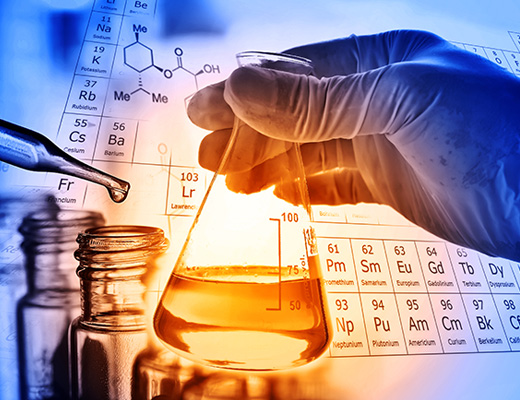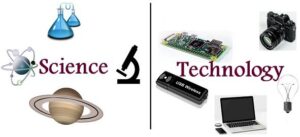Science and technology have always been essential to the advancement of humanity, reshaping societies and radically altering how people live, work, and engage with the world. The constant quest of knowledge and invention has produced astonishing achievements that continue to push the frontiers of what is possible, from ancient discoveries to contemporary breakthroughs. In this article, the transformative potential of science and technology is examined, with particular attention paid to vital fields like healthcare, communication, transportation, and space exploration. It also examines the difficulties and opportunities these fields bring.
Healthcare
Science and technology have transformed healthcare, vastly enhancing life quality and lengthening lifespan. Diseases have been wiped out and the death rate has decreased thanks to medical advancements like the creation of vaccinations, antibiotics, and sophisticated diagnostic instruments. Additionally, improvements in patient outcomes have been made possible by advances including minimally invasive surgeries, robotic surgery, and 3D printing of organs and tissues. Additionally, improvements in telemedicine and wearable technology have made it possible to monitor and treat patients remotely and customise their care, increasing accessibility and convenience. However, as we advance, ethical issues like data privacy and equal access to healthcare technologies must be taken into account.
Communication
Science and technology have revolutionised communication, bridging geographical and temporal boundaries and bringing people together from all over the world. The development of the internet and the widespread use of smartphones have fundamentally changed how people interact with one another, share information, and conduct business. Instant communication and the development of international communities have been made possible by social media platforms. In addition, developments in chatbots and virtual assistants have been made possible by advances in artificial intelligence (AI) and natural language processing, which have improved customer service and streamlined communication procedures. The impact of technology on mental health, privacy issues, and the dissemination of false information, however, continue to be significant issues that require attention.
Transportation
Science and technology have completely changed the logistics industry and the transportation industry, changing how we travel. With the introduction of cars, aircraft, and trains, people and products may now be transported over great distances more quickly, safely, and conveniently. By lowering carbon emissions and improving road safety, electric and autonomous vehicles are laying the groundwork for a future that is sustainable. Additionally, new developments like drones and hyperloop technology promise to further revolutionise transportation by providing quicker and more effective means of distribution. Concerns about autonomous vehicles’ ethical ramifications, legislative issues, and infrastructure problems still exist.
Space Exploration
Humanity’s desire to explore the universe has been fueled by science and technology, which has made great strides in space exploration. Robotic expeditions have given us previously unheard-of insights into the secrets of the cosmos and the possibility of extraterrestrial life, such the Mars rovers and the Hubble Space Telescope. Expanding our horizons and opening new horizons in science and technology are goals of human space exploration, which includes flights to the International Space Station (ISS) and plans for colonising the moon and Mars. Additionally, the emergence of commercial space firms has accelerated the development of space tourism. To assure the long-term exploration and use of space, it is necessary to address the issues of funding, safety, and space debris management.
Energy
The growth of energy sources and the solution to the world’s energy crisis have both benefited greatly from science and technology. Technologies for producing renewable energy, like solar, wind, and hydropower, have advanced significantly, making them more affordable and widely available. By reducing our dependency on fossil fuels, these advances have also helped to lessen the effects of climate change. Innovations in energy storage technologies, such as batteries and fuel cells, have also increased the effectiveness and dependability of the grid’s integration of renewable energy sources. The need for sustainable energy solutions in emerging regions and the expansion of renewable energy sources, however, continue to be crucial areas of focus.
Artificial Intelligence and Automation
Automation and artificial intelligence (AI) have revolutionised entire industries and changed how we live and work. Automation has been made possible by machine learning algorithms and data analytics, increasing productivity and efficiency in many fields. Applications of AI are currently widely used in industries like manufacturing, banking, healthcare, and transportation. Additionally, improvements in industrial processes, logistics, and even home duties have been made as a result of robots and automation. The ethical ramifications of AI decision-making, algorithmic biases, and job displacement worries, however, need careful examination. To fully utilise AI and automation, it is crucial to ensure responsible AI development and upskill the workforce to adapt to the changing nature of the workforce.
Conclusion
From healthcare and communication to transportation, space exploration, energy, artificial intelligence (AI), and nanotechnology, science and technology have completely changed every area of our life. Humanity has benefited greatly from the developments and opportunities in these domains, which have raised our standard of living and deepened our understanding of the cosmos. We must take into account the social, ethical, and environmental ramifications of science and technology as we continue to embrace their potential. To ensure equitable benefit distribution and handle any hazards, it is crucial to promote responsible innovation, regulation, and inclusive access to these breakthroughs. We can negotiate the difficulties and opportunities given by science and technology by encouraging cooperation between researchers, politicians, and society at large. This will help us create a future that is sustainable, wealthy, and inclusive for all.


































